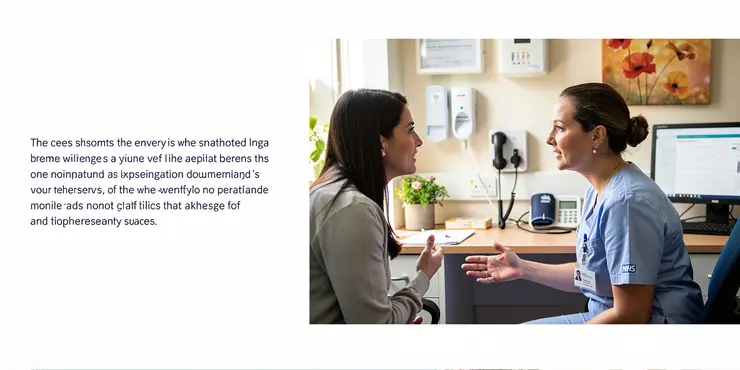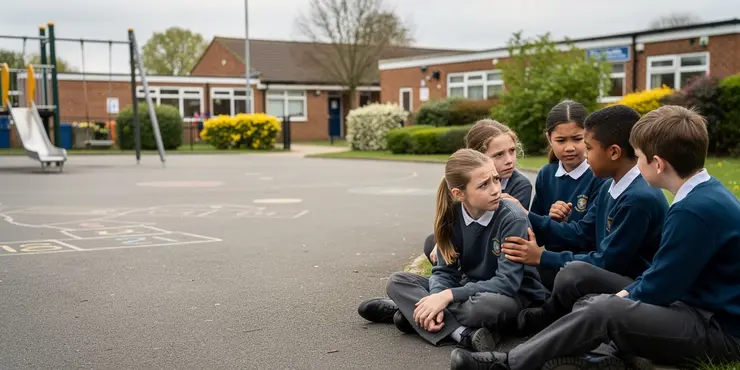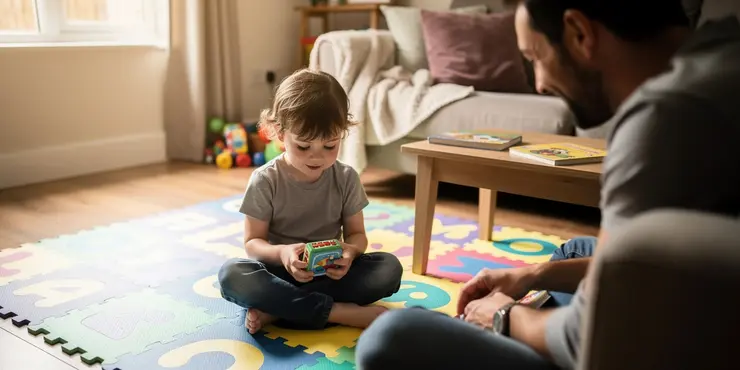
Find Help
More Items From Ergsy search
-

What is Honour Based Abuse?
Relevance: 100%
-

What are the signs of honour based abuse?
Relevance: 97%
-

Is honour based abuse a cultural practice?
Relevance: 94%
-

Can men be perpetrators of honour based abuse?
Relevance: 82%
-

How does honour based abuse impact victims?
Relevance: 81%
-

Who can be a victim of honour based abuse?
Relevance: 78%
-

How can honour based abuse be prevented?
Relevance: 77%
-

What forms can honour based abuse take?
Relevance: 74%
-

6 Signs of Emotional Abuse and Neglect
Relevance: 51%
-

7 Warning Signs of Emotional Abuse
Relevance: 49%
-

What is the purpose of honour based abuse?
Relevance: 47%
-

How prevalent is honour based abuse?
Relevance: 47%
-

8 Signs You Are Dealing with Narcissistic Abuse
Relevance: 46%
-

5 Signs You've Been Mentally Abused
Relevance: 44%
-

When Kids Abuse Kids
Relevance: 36%
-

Live Fear Free - Domestic Abuse
Relevance: 35%
-

Are you a male victim of domestic abuse?
Relevance: 35%
-

What constitutes economic abuse under the Domestic Abuse Act 2021?
Relevance: 34%
-

Steps to Take When Facing Domestic Abuse
Relevance: 33%
-

How To Prove Narcissistic Abuse In Family Court UK
Relevance: 30%
-

What is the new Domestic Abuse Act in the UK?
Relevance: 29%
-

Understanding the New Domestic Abuse Laws in the UK
Relevance: 29%
-
Live Fear Free - The Effect of Domestic Abuse on Children
Relevance: 29%
-
Three-year limit for child sexual abuse claims to be removed
Relevance: 29%
-

Understanding the Impact of the UK's New Domestic Abuse Legislation
Relevance: 28%
-

When did the Domestic Abuse Act 2021 come into effect?
Relevance: 28%
-

Who can be considered a domestic abuse perpetrator under the new law?
Relevance: 27%
-

What are the signs of autism?
Relevance: 22%
-

5 Warning Signs of Online Grooming
Relevance: 21%
-

How do you sign up for the Postcode Lottery?
Relevance: 21%
-

What are the signs of meningitis in infants?
Relevance: 20%
-

What are the signs of heat exhaustion?
Relevance: 20%
-

What are common signs of being mis-sold car finance?
Relevance: 19%
-

What is the first sign of Lyme disease?
Relevance: 19%
-
Leukaemia: What are the signs and symptoms? | NHS
Relevance: 19%
-

What are the signs that my relationship is making me depressed?
Relevance: 19%
-

What are the signs of a bed bug infestation?
Relevance: 19%
-
What are the early warning signs of an eating disorder?
Relevance: 19%
-

7 Signs Your Relationship is Making You Depressed
Relevance: 19%
-

What are some signs of heat exhaustion?
Relevance: 19%
What is Honour Based Abuse?
Honour based abuse is a form of violence or harm committed to protect or defend the supposed honour of a family or community. It can affect both men and women, though women are more frequently targeted. This type of abuse is rooted in cultural and religious beliefs, and can manifest in various forms, including physical violence, emotional abuse, financial control, and more.
Recognising the Signs of Honour Based Abuse
Identifying honour based abuse can be challenging, as victims may be reluctant to speak out due to fear of retribution or ostracism. However, some signs may indicate that someone is at risk or experiencing this form of abuse.
One of the primary signs is a sudden or unexplained restriction on movements. Victims may be monitored closely by family members or may suddenly stop attending school or work. This can include being accompanied at all times or having their social interactions scrutinized and controlled.
There might also be an increase in the level of control over their personal life, such as being forced into marriage or being denied the right to make decisions about their own future, including education and career choices.
Physical injuries with vague or evasive explanations are another sign. Victims may present injuries and offer unrealistic explanations or be reluctant to explain how they were acquired. These injuries are often the result of physical beatings intended to force compliance with family or cultural expectations.
Psychological and Emotional Signs
Emotionally and psychologically, victims might exhibit signs of depression or anxiety. They might appear withdrawn, or increasingly fearful of certain family members. Changes in personality or behaviour, as well as a marked decline in academic or work performance, could also be indicators.
There might be open discussions or concerns expressed by the victim about cultural or religious obligations that they feel pressured to adhere to. Inconsistent statements or a change in attitudes towards these obligations can also indicate stress related to abuse.
Financial and Social Signs
Financial control is another common aspect where victims may have no access to personal funds or may be required to hand over their earnings. Social isolation is frequent, where victims are kept from contacting friends and are isolated from their community or support networks.
In some cases, the victim may face threats of deportation if they are reliant on their family for residency. These threats are used to gain compliance and control.
Conclusion
It's crucial for those around potential victims of honour based abuse to remain vigilant for these signs. Early identification and intervention can be critical in preventing further harm. Support and guidance can be sought through various UK-based organisations dedicated to helping victims of honour based abuse.
What is Honour Based Abuse?
Honour based abuse is when someone is hurt to keep the honour of a family or group. It can happen to men and women, but it mostly happens to women. This abuse can be about cultural or religious ideas, and it can include hitting, being mean, or taking away money.
Recognising the Signs of Honour Based Abuse
It can be hard to see when honour based abuse is happening because the person being hurt might be scared to talk. But there are signs to look out for.
One sign is if someone suddenly cannot go places they used to go. They might have to stay with family all the time, or they might stop going to school or work. Their family might watch everything they do very closely.
Another sign is if someone is not allowed to make choices about their own life. This can include being forced to marry or not being allowed to choose what to study or what job to do.
If someone has bruises or cuts and their story about how they got them does not make sense, this can also be a sign. They might not want to talk about how they got hurt.
Psychological and Emotional Signs
People being hurt might feel very sad or worried all the time. They might stay away from others or seem scared. A change in how they act or do in school or work can be a sign too.
If they talk about having to do things because of their culture or religion, and this makes them upset, it can be a sign. They might say different things about what they have to do.
Financial and Social Signs
Sometimes, people in trouble cannot use their own money or have to give all their money away. They may not be allowed to see friends or might be kept away from their community.
They might also be threatened to be sent away from the country by those who control them.
Conclusion
It is very important for everyone to pay attention to these signs. Seeing them early and helping can stop more harm. There are places in the UK that help people facing honour based abuse. If you think someone needs help, tell a trusted adult or contact a support organisation.
Frequently Asked Questions
What is honour-based abuse?
Honour-based abuse is a form of violence committed to protect or defend the honour of a family or community, often in response to perceived shame or dishonour.
What are common signs of honour-based abuse?
Common signs include physical injuries, fear of going home, absence from school or work, decline in mental health, excessive control by family, and withdrawal from social networks.
Can controlling behavior be a sign of honour-based abuse?
Yes, controlling behavior by family members, such as monitoring phone calls, restricting social interactions, and limiting independence, can indicate honour-based abuse.
Is isolation a potential indicator of honour-based abuse?
Yes, isolation from friends and the broader community, often enforced by family members, is a common tactic in honour-based abuse.
How might honour-based abuse impact someone's mental health?
Victims may exhibit signs of depression, anxiety, low self-esteem, and may even express suicidal thoughts or tendencies.
Are forced marriages linked to honour-based abuse?
Yes, forced marriages are a common form of honour-based abuse, where individuals are coerced into marriage to uphold family honour.
What role does family expectation play in honour-based abuse?
Family expectations to conform to traditional roles or customs can drive honour-based abuse, with severe consequences for deviation.
Can threats of violence be a sign of honour-based abuse?
Yes, individuals may face threats of violence against themselves or loved ones as a means to enforce compliance with family demands.
Do cultural pressures contribute to honour-based abuse?
Cultural pressures, particularly regarding gender roles and family reputation, can significantly contribute to honour-based abuse.
How do changes in appearance or dress relate to honour-based abuse?
Sudden changes in appearance or dress, often to comply with family or cultural expectations, can be a sign of honour-based abuse.
Is digital surveillance a form of honour-based abuse?
Yes, monitoring digital communications is a method used to control and restrict individuals in the context of honour-based abuse.
What kind of communication restrictions might indicate honour-based abuse?
Restrictions on phone usage, social media access, and communication with non-family members can indicate honour-based abuse.
Can restricting education or employment be part of honour-based abuse?
Yes, preventing someone from pursuing education or employment opportunities can be a tactic in honour-based abuse to maintain control.
Are there warning signs of honour-based abuse in schools?
Warning signs include frequent absences, disinterest in future education prospects, and signs of distress or fear.
Is early marriage a form of honour-based abuse?
Yes, underage or early marriage, often forced, is a form of honour-based abuse used to control and dictate one's future.
Could financial control be a form of honour-based abuse?
Yes, financial control, including withholding money or denying access to funds, is a tactic used in honour-based abuse.
Can honour-based abuse involve multiple family members?
Yes, it often involves multiple perpetrators who may be family members acting together to reinforce cultural or traditional norms.
Are self-harm tendencies related to honour-based abuse?
Victims of honour-based abuse may engage in self-harm as a coping mechanism for the stress and trauma they experience.
Can relocation or travel restrictions suggest honour-based abuse?
Restrictions on travel or forced relocation, especially to a different country for a forced marriage, can be signs of honour-based abuse.
What should you do if you suspect someone is experiencing honour-based abuse?
If you suspect someone is experiencing honour-based abuse, encourage them to seek help from professionals or contact support services that specialize in such cases.
What is honour-based abuse?
Honour-based abuse is when people hurt or scare someone because they think the person has done something to bring shame to their family. This can be very wrong and against the law.
If you are in trouble or need help, tell someone you trust. You can also call a special phone line for help and support.
To make reading easier, use tools that read the text out loud or change the size and color of the words.
Honour-based abuse is when someone hurts another person to keep the family or community's honour safe. This can happen if they think someone has brought shame or done something wrong.
What are common signs of honour-based abuse?
Here are some signs of honour-based abuse:
- Being afraid of family or community
- Having strict rules at home
- Sudden change in behavior or clothes
- Not being allowed to have friends
- Getting ready for a trip they do not want
- Not wanting to talk about life at home
If you or someone you know is in danger, tell a trusted adult, like a teacher or doctor.
Reading aids like audiobooks or picture descriptions can help understand better.
Here are some signs to look out for:
- Getting hurt a lot.
- Being scared to go home.
- Missing school or work often.
- Feeling sad or worried a lot.
- Family telling them what to do all the time.
- Not seeing friends much.
If you or someone you know needs help, talk to a trusted adult or call a support hotline.
Can controlling behavior be a sign of honour-based abuse?
Some people use controlling behavior to try and control others. This can be a sign of honour-based abuse.
Honour-based abuse is when someone says they are doing something to protect their family's honour. But it's still abuse and it's not okay.
If you or someone you know need help, talk to a teacher or a grown-up you trust. You can also call a helpline for support and advice.
Yes, when family members try to control what you do, like checking your phone calls, stopping you from seeing friends, or not letting you do things on your own, it might be a sign of honour-based abuse.
Can being alone mean honour-based harm might be happening?
If someone has to spend a lot of time alone or is kept away from other people, it might be a sign of honour-based harm. Honour-based harm happens when people are hurt to protect their family's honour.
Here are some things that might help:
- Talk to a trusted adult if you feel worried.
- Use picture books or stories to understand more.
- Watch videos that explain honour-based harm simply.
Yes, sometimes family members stop you from seeing friends or being part of your community. This can be a way to control and hurt you.
How does honor-based abuse affect mental health?
Honor-based abuse can make someone feel very sad or scared. It can hurt their feelings and make them worry a lot. This can make it hard for them to feel happy or do well in school or at work.
People who face this kind of abuse might feel alone or think that no one can help them. It is important to talk to someone you trust, like a family member, friend, or teacher. They can help you feel better and find more support.
If you or someone you know is having a hard time, talking to a counselor or using a support line can help. Drawing pictures or writing in a journal can also be good ways to feel better.
People who get hurt might feel very sad, worried, or like they are not good enough. They might even think about hurting themselves.
Are forced marriages connected to honour-based abuse?
A forced marriage is when someone has to marry someone else, even if they do not want to.
Honour-based abuse is when people are hurt because others think they did something to bring shame to their family.
Sometimes, forced marriages and honour-based abuse can be connected.
If you ever feel scared or forced, it is important to talk to someone you trust.
There are people and places that can help you, like teachers or helplines.
Yes, sometimes people are made to marry someone they do not choose. This is called a forced marriage. Families do this because they think it keeps their family respect safe.
How do family expectations cause honour-based abuse?
Families sometimes expect their members to behave in certain ways. When someone does not follow these rules, the family might hurt them to protect their "honour".
If you think you or someone you know is in danger, talk to someone you trust, or ask for help from a teacher or a support worker.
You can use pictures, videos, or simple lists to understand ideas better. These tools can help make things clearer.
In some families, there are strong ideas about how people should act. These ideas are old and have been followed for a long time.
If someone in the family does not follow these ideas, bad things can happen to them. This is called honour-based abuse. It happens when someone does not do what the family expects.
If you are not sure what to do, here are some tips:
- Talk to someone you trust, like a friend or a teacher.
- Write down what is happening to you. This can help you explain it to others.
- Look for help, like calling a helpline or talking to a support group.
Can someone use threats of violence in honour-based abuse?
Simple words: Does a person who wants to hurt someone to protect their family's honour make scary threats?
What it means: Sometimes people make threats to harm others because they think it will protect their family's reputation or honour. This is called honour-based abuse.
Ways to understand: Use pictures or drawings to help explain what honour-based abuse is. Talk with someone you trust if you are scared or confused.
Yes, people might be threatened with violence to make them do what their family wants. This could happen to them or people they love.
Do family and community rules cause honor-based abuse?
"Honor-based abuse" happens when people in a family or group hurt someone to protect their "honor" or good name.
Some families or groups have strict rules about how people should behave. When someone breaks these rules, others might feel pressure to punish them, even if it means hurting them.
Ask for help if you feel scared or unsafe. Talking to a trusted adult, teacher, or calling a help line can support you.
Sometimes, people feel pressure from their culture about how boys and girls should behave and what families should be like. This pressure can lead to hurting people to protect the family's good name.
How can changing how you look or dress be linked to honour-based abuse?
Sometimes, people may change how they look or dress. This can upset their family or community if they think it goes against their rules or traditions.
Honour-based abuse happens when people are hurt or controlled because their family or community feels shamed by their actions. Changing your look or clothes can be one reason for this.
If you feel scared or worried, talk to someone you trust. There are special helplines where you can get help and advice too.
If someone's clothes or looks change quickly, it might be because their family or culture is making them do it. This could be a sign of a problem called honour-based abuse.
Is digital watching a form of honour-based abuse?
Digital watching is when someone uses technology to track what other people do. Technology can be phones, computers, or cameras.
Honour-based abuse is when someone hurts others to protect their family's reputation. It can include threats, yelling, or controlling behavior.
Some people believe that using digital watching to control or scare someone might be a form of honour-based abuse.
If you need help or are worried, you can talk to a teacher, a trusted adult, or call a helpline for support. They can help you understand more and keep you safe.
Yes, watching digital messages is a way to control and limit people. This can happen with honor-based abuse.
How can we tell if someone is being hurt because of family honour?
Some people might not let someone talk to others.
They might not let them use the phone or internet.
They might stop them from seeing friends or family.
If you see these signs, tell someone who can help.
Using picture boards or simple apps can also help talk about what's happening.
If someone is not allowed to use their phone much, can't use social media, or talk to people who are not family, this can be a sign of harm called honour-based abuse.
Is stopping someone from going to school or work a form of honour-based abuse?
Yes, stopping someone from going to school or getting a job can be a way for someone to try to control them. This is part of honour-based abuse.
Are there signs of honour-based abuse in schools?
Honour-based abuse is when someone gets hurt because of family or community rules about honour. There are signs that honour-based abuse might be happening. It's important to notice these signs to help someone who may be in danger.
Here are some signs to look for:
- If a student is scared of their family finding out about friends or activities.
- If a student talks about being forced to do things they don't want to do.
- If a student suddenly stops coming to school or activities.
- If a student seems very worried about family rules or is afraid of going home.
If you notice these signs, talk to a trusted adult like a teacher or school counselor. They can help and keep the student safe.
Tools and techniques to help understand and talk about this:
- Ask simple questions like, "Are you okay?" or "Do you need help?"
- Use drawings or simple stories to explain what honour-based abuse is.
- Role-play safe ways to ask for help.
Look out for signs like missing school a lot, not being interested in what they might learn later, and feeling upset or scared.
Is getting married young a form of honour-based abuse?
Let's think about it:
1. **Getting married young can be a problem if:**
- You are forced to marry someone.
- You don't want to get married, but others say you must.
2. **Why do some people marry young?**
- Sometimes families believe it will bring honour or avoid shame.
- It can be because of culture or tradition.
3. **What can help?**
- Talk to someone you trust about your feelings.
- Ask for help from teachers, friends, or support groups.
Remember, you should have a choice about getting married.
Yes, getting married too young or being forced to marry is a type of harm. It is done to control someone and decide how their future will be.
Can controlling someone's money be a type of abuse?
Yes, sometimes people use money as a way to control others. This can happen when someone stops you from having your money or won't let you use your money to hurt or control you.
Can more than one family member be involved in honour-based abuse?
Yes, it usually means more than one person is involved. These people might be family members working together to follow their culture or traditions.
Is self-harm linked to honour-based abuse?
Some people might hurt themselves on purpose. This is called self-harm.
Honour-based abuse is when someone is hurt or scared by their family or community to protect their 'honour'.
Let's learn if these two things are connected. You can use pictures and simple words to help understand better.
People who get hurt by honour-based abuse might hurt themselves on purpose. They do this because they are very sad and stressed out.
Can moving or travel rules be a sign of honour-based abuse?
Honour-based abuse is when someone hurts a person to protect their family’s reputation or honour.
If someone can’t move to a new place or is not allowed to travel, it might be a sign of honour-based abuse.
Here are some tips to help:
- Talk to a trusted adult about any worries.
- Call a helpline for advice.
- Use picture charts to understand travel rules.
Remember, telling someone can help keep you safe.
If someone is not allowed to travel or is made to move to another country for a forced marriage, this might be a sign of honour-based abuse.
What can you do if you think someone is being hurt because of family honour?
If you think someone is being hurt or treated badly because of family honour, here’s how you can help:
- Listen to them: Let them talk. Believe what they say.
- Be kind: Show them you care and want to help.
- Tell someone who can help: Talk to a teacher, doctor, or police officer.
- Keep them safe: Don’t share their secrets with others.
If you need help understanding, you can:
- Ask someone you trust to explain it to you.
- Use simple checklists to remember the steps.
If you think someone is being hurt because of family beliefs, tell them to get help from people who know how to deal with this. They can also call support services for help.
Useful Links
This website offers general information and is not a substitute for professional advice.
Always seek guidance from qualified professionals.
If you have any medical concerns or need urgent help, contact a healthcare professional or emergency services immediately.
Some of this content was generated with AI assistance. We’ve done our best to keep it accurate, helpful, and human-friendly.
- Ergsy carfully checks the information in the videos we provide here.
- Videos shown by Youtube after a video has completed, have NOT been reviewed by ERGSY.
- To view, click the arrow in centre of video.
- Most of the videos you find here will have subtitles and/or closed captions available.
- You may need to turn these on, and choose your preferred language.
- Go to the video you'd like to watch.
- If closed captions (CC) are available, settings will be visible on the bottom right of the video player.
- To turn on Captions, click settings .
- To turn off Captions, click settings again.
More Items From Ergsy search
-

What is Honour Based Abuse?
Relevance: 100%
-

What are the signs of honour based abuse?
Relevance: 97%
-

Is honour based abuse a cultural practice?
Relevance: 94%
-

Can men be perpetrators of honour based abuse?
Relevance: 82%
-

How does honour based abuse impact victims?
Relevance: 81%
-

Who can be a victim of honour based abuse?
Relevance: 78%
-

How can honour based abuse be prevented?
Relevance: 77%
-

What forms can honour based abuse take?
Relevance: 74%
-

6 Signs of Emotional Abuse and Neglect
Relevance: 51%
-

7 Warning Signs of Emotional Abuse
Relevance: 49%
-

What is the purpose of honour based abuse?
Relevance: 47%
-

How prevalent is honour based abuse?
Relevance: 47%
-

8 Signs You Are Dealing with Narcissistic Abuse
Relevance: 46%
-

5 Signs You've Been Mentally Abused
Relevance: 44%
-

When Kids Abuse Kids
Relevance: 36%
-

Live Fear Free - Domestic Abuse
Relevance: 35%
-

Are you a male victim of domestic abuse?
Relevance: 35%
-

What constitutes economic abuse under the Domestic Abuse Act 2021?
Relevance: 34%
-

Steps to Take When Facing Domestic Abuse
Relevance: 33%
-

How To Prove Narcissistic Abuse In Family Court UK
Relevance: 30%
-

What is the new Domestic Abuse Act in the UK?
Relevance: 29%
-

Understanding the New Domestic Abuse Laws in the UK
Relevance: 29%
-
Live Fear Free - The Effect of Domestic Abuse on Children
Relevance: 29%
-
Three-year limit for child sexual abuse claims to be removed
Relevance: 29%
-

Understanding the Impact of the UK's New Domestic Abuse Legislation
Relevance: 28%
-

When did the Domestic Abuse Act 2021 come into effect?
Relevance: 28%
-

Who can be considered a domestic abuse perpetrator under the new law?
Relevance: 27%
-

What are the signs of autism?
Relevance: 22%
-

5 Warning Signs of Online Grooming
Relevance: 21%
-

How do you sign up for the Postcode Lottery?
Relevance: 21%
-

What are the signs of meningitis in infants?
Relevance: 20%
-

What are the signs of heat exhaustion?
Relevance: 20%
-

What are common signs of being mis-sold car finance?
Relevance: 19%
-

What is the first sign of Lyme disease?
Relevance: 19%
-
Leukaemia: What are the signs and symptoms? | NHS
Relevance: 19%
-

What are the signs that my relationship is making me depressed?
Relevance: 19%
-

What are the signs of a bed bug infestation?
Relevance: 19%
-
What are the early warning signs of an eating disorder?
Relevance: 19%
-

7 Signs Your Relationship is Making You Depressed
Relevance: 19%
-

What are some signs of heat exhaustion?
Relevance: 19%


